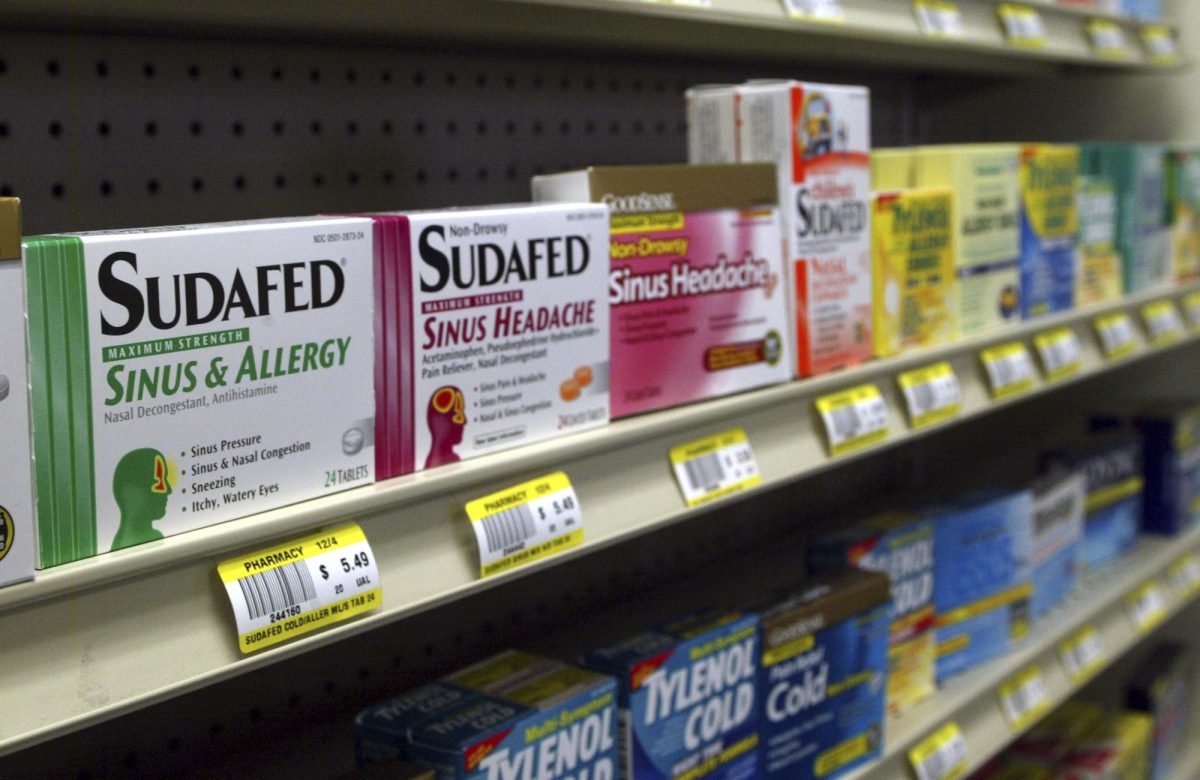Cold season is here, but decongestants are being taken off the shelves, leaving people wondering how to find relief.
In September, the FDA announced that an ingredient in most decongestants and allergy medications was proven ineffective.
The ingredient, phenylephrine (PE), is supposed to treat nasal decongestion caused by allergies, colds and sinus infections.
Some products that contain PE are Mucinex, Sudafed PE, Sinex, Dayquil, Benadryl, Tylenol Sinus, Advil Sinus Congestion, Lusonal and many more.
“Consumers should also know that some products only contain phenylephrine,” according to the Food and Drug Administration. “Other products contain phenylephrine and another active ingredient (e.g., acetaminophen or ibuprofen) that treats symptoms other than congestion like headaches or muscle aches, and the presence of PE in these products does not affect how other active ingredients work to treat those symptoms.”
The FDA also advises consumers to read the drug facts label to determine which ingredients are in a medication because a variety of drug products could be sold under the same brand name. They should also read the important warnings and directions for use.
In response to this, CVS has announced it will take decongestants whose only active ingredient is PE off of its shelves. Decongestants that contain PE and other active ingredients will remain on the shelves for consumers to purchase.
While the common cold has no cure, decongestants were thought to provide some relief. With the decongestants being proven ineffective and being taken off of the shelves, other remedies for relief are now being used.
The Mayo Clinic suggests that taking care of your body while it heals is the best thing you can do to find relief. They also list best practices to ensure that you are taking care of your body: plenty of rest, drinking fluids, humidifying the air and using saline nasal rinses.
Although many decongestants are being taken off the shelves, common cold relief is available naturally and through other products.










